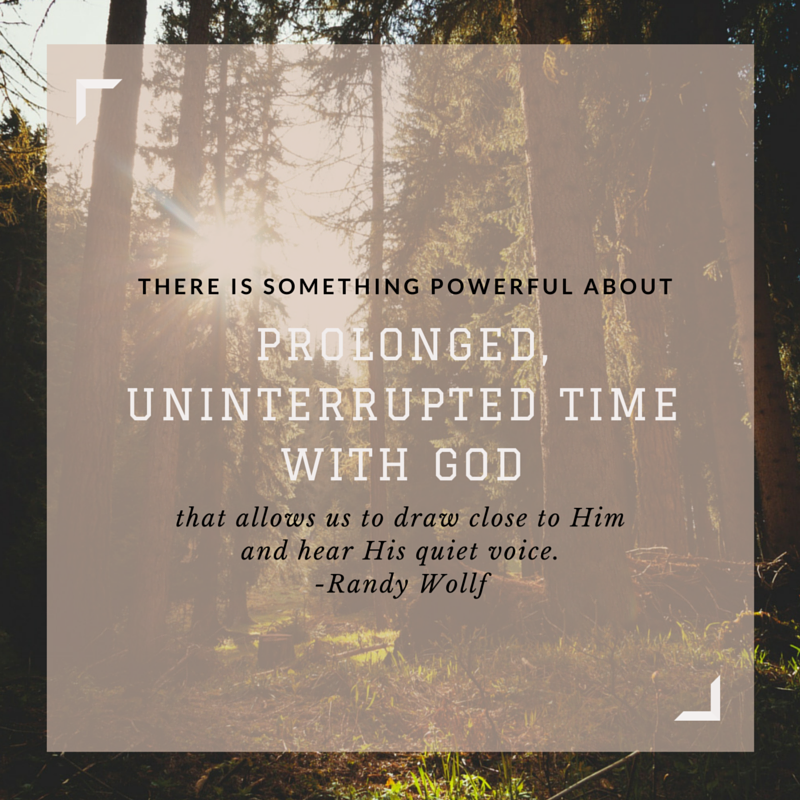Five Reasons to Go on a Prayer Retreat

Last week, I had the opportunity to go on a daylong prayer retreat. I came away refreshed, more in love with Jesus, and with a keener sense of His priorities for my life. Going on these kinds of retreats is something I’ve been doing for over 20 years (sometimes more regularly than others). Here are five reasons why I do them (and why I think others should consider doing them, as well):
We Experience Rest and Refreshment
When I go on a prayer retreat, I try not to schedule too many activities. It’s an opportunity for me to slow down – to practice a true day of rest. I come away from these times refreshed in body, mind, and spirit.
We Enter into Silence
Susan Moto says, “In a noise-polluted world, it is even difficult to hear ourselves think let alone try to be still and know God. Yet it seems essential for our spiritual life to seek some silence, no matter how busy we may be. Silence is not to be shunned as empty space, but to be befriended as fertile ground for intimacy with God.”
I know that silence is difficult to embrace when we are not used to it (yes, it may mean shutting off our electronic devices). Yet, silence creates a space where we can experience God in a deeper way.
We Connect with Jesus
Healthy relationships require time to connect. A prayer retreat gives us the opportunity to spend prolonged, intimate time with Jesus – listening, talking, and just being together. During a prayer retreat, I will find myself adoring God through praise. I’ll spend time interceding for others. Sometimes, I’m brought to my knees in confession as the Spirit reveals sin in my life. Throughout the day, I experience God’s love and express my love to Him. I cannot think of a time when I left a prayer retreat not feeling more in love with Jesus.
We Gain a Renewed Focus
When I remove myself from my normal activities for a prolonged period of time, I am better able to focus on Jesus. As I do so, I am more likely to gain his perspective on my life, both the present and the future. My fears and anxieties begin to fade into the background as God takes centre stage.
We Receive Guidance
There is something powerful about prolonged, uninterrupted time with God that allows us to draw close to Him and hear His quiet voice. Whether it’s related to a significant personal decision, a family matter, or a work situation, I find that God will often speak into those situations as I take time to listen.
What is your experience with prayer retreats? I would love to hear what you have found beneficial (you can leave a comment below).

 I have vivid memories of fasting when I was a kid. I remember the odd sensation of my stomach doing backflips in the early afternoon. I remember the newfound awkwardness that lunchtime presented in the public school cafeteria. I remember thinking that ingesting any sort of calorie might undo all of the spiritual collateral I had stored up to that point. And I remember not understanding how any of this was convincing God to respond more favourably to my prayer request.
I have vivid memories of fasting when I was a kid. I remember the odd sensation of my stomach doing backflips in the early afternoon. I remember the newfound awkwardness that lunchtime presented in the public school cafeteria. I remember thinking that ingesting any sort of calorie might undo all of the spiritual collateral I had stored up to that point. And I remember not understanding how any of this was convincing God to respond more favourably to my prayer request.
 In his book
In his book